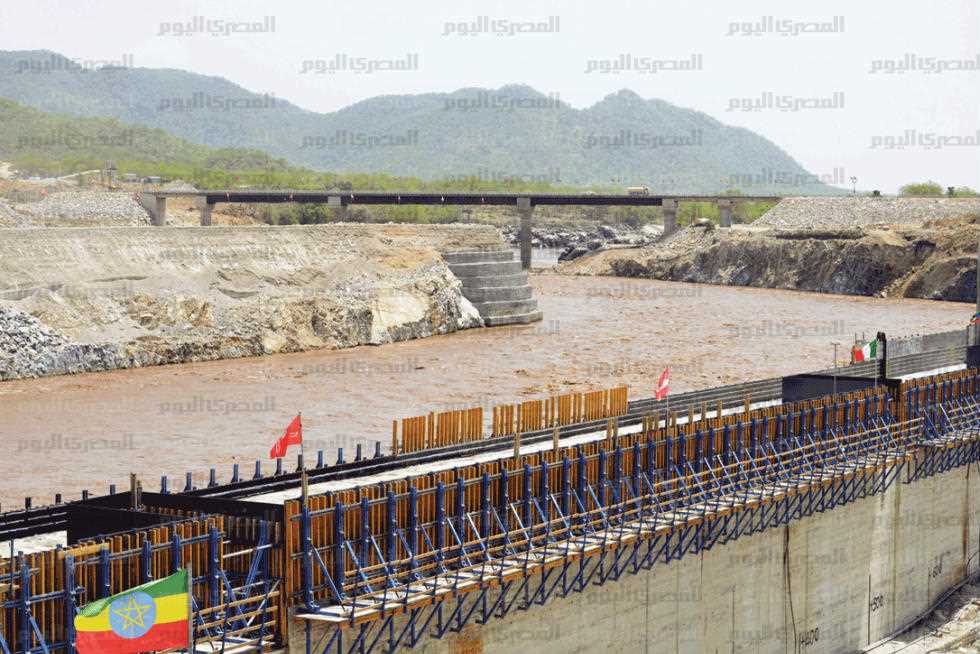
Recent media reports that Israeli defense systems are in place to protect the Grand Ethiopian Renaissance Dam (GERD) have sparked widespread controversy among social media users amid the escalating crisis between Egypt and Ethiopia over the Nile waters.
The Israeli Embassy in Egypt posted a tweet on its Twitter account on Tuesday refuting these reports, stressing that its country stands at equal distance from both sides of the issue, and that its relations with Egypt are at their best.
أثير مؤخراً بعض الإشاعات عن أن النظم الدفاعية الإسرائيلية تستخدم لحماية سد النهضة في أثيوبيا، ولكن على الرغم من العلاقات الجيدة التي تجمعنا بدولة أثيوبيا، إلا أن هذه مجرد إشاعات، وأن دولة إسرائيل تقف على مسافة واحدة حيث أن العلاقات مع مصر على أفضل حال
#إسرائيل #مصر pic.twitter.com/lGjTTh6F0K— السفارة الاسرائيلية (@IsraelinEgypt) October 22, 2019
“There have emerged recent rumors that Israeli defense systems are being used to protect the Renaissance Dam in Ethiopia, but despite the good relations we have with Ethiopia, these are just rumors,” the embassy tweeted.
In a separate tweet, the embassy said, “There are some journalistic sources in Egypt that announced that there is another country that sold its defense system to Ethiopia. We in Israel hope that this issue concerning the Renaissance Dam between the Egyptian and Ethiopian sides be solved.”
ويوجد بعض المصادر الصحفية في مصر التي أعلنت أنه يوجد دولة أخرى هي التي باعت منظومة دفاعها إلى إثيوبيا
نتمنى في دولة إسرائيل أن تحل المسألة المتعلقة بسد النهضة بين الجانبين المصري والإثيوبي
#إسرائيل #مصر— السفارة الاسرائيلية (@IsraelinEgypt) October 22, 2019
Ethiopia’s Nobel Peace Prize-winning prime minister Abiy Ahmed recently warned that if the need arises to go to war with Egypt over the disputed dam project, his country would mobilize millions of people in support.
The Associated Press, which reported the remarks, said that Ahmed made the statements during a session of the Ethiopian parliament on Tuesday on the stalled dam negotiations with Egypt and Sudan. The Associated Press also reported that Ahmad said that only negotiation can resolve the current deadlock.
The Egyptian Foreign Ministry issued a statement expressing its “shock,” and “great concern and regret” at the statements reported by the media and attributed to the Ethiopian Prime Minister.
The ministry also said in the statement that it is inappropriate to engage in theses involving military solutions. Egypt said in the statement that it was “deeply surprised” by these statements that contradict the “texts, principles, and spirit of the basic law of the African Union.”
Egyptian President Abdel Fattah al-Sisi and Abiy Ahmed are expected to meet in Sochi, Russia, on the sidelines of the Africa-Russia Summit to discuss the Renaissance Dam.
The summit, which kicks off on Wednesday, will be co-chaired by Sisi, who holds the presidency of the African Union, and Russian President Vladimir Putin to discuss strengthening Russia’s relations with the African continent.
Egypt also announced that it has accepted the US’ invitation to a meeting on the dam in the US capital, Washington. The invitation from the US administration is for a tripartite meeting of the foreign ministers of Egypt, Ethiopia, and Sudan.
Earlier in October, Egypt’s Water Resources and Irrigation Ministry said that negotiations with Ethiopia reached a dead end after the two sides failed to reach an agreement over the filling of the GERD.
The Egyptian government blamed the failure of the talks on obstacles from the Ethiopian side.
Ethiopia began constructing the GERD in 2011. The GERD cost US$4.7 billion in total to build. Ethiopia plans to fill the reservoir with water to power what is expected to become the largest hydroelectric dam in Africa.
However, Egypt has been particularly critical of the dam’s construction, arguing that it will reduce its legitimate share of Nile river water access, thus threatening its water security.




